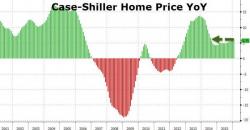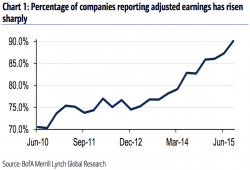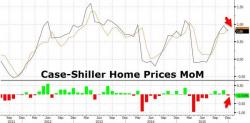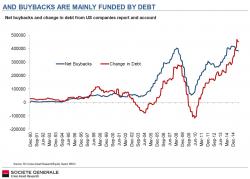Case-Shiller Home Price Growth Slowest Since September
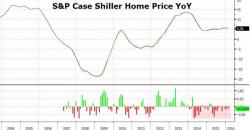
For the 5th month in a row (and 10th of last 11), S&P Case-Shiller Home Price growth YoY missed expectations. February saw prices rise 5.38% (below 5.5% exp) which is the weakest annual growth since September 2015. Seattle and San Francisco rose the most MoM as Cleveland and New York saw the biggest drops MoM.
Weakest home prices appreciation since September 2015 and the misses continue...
